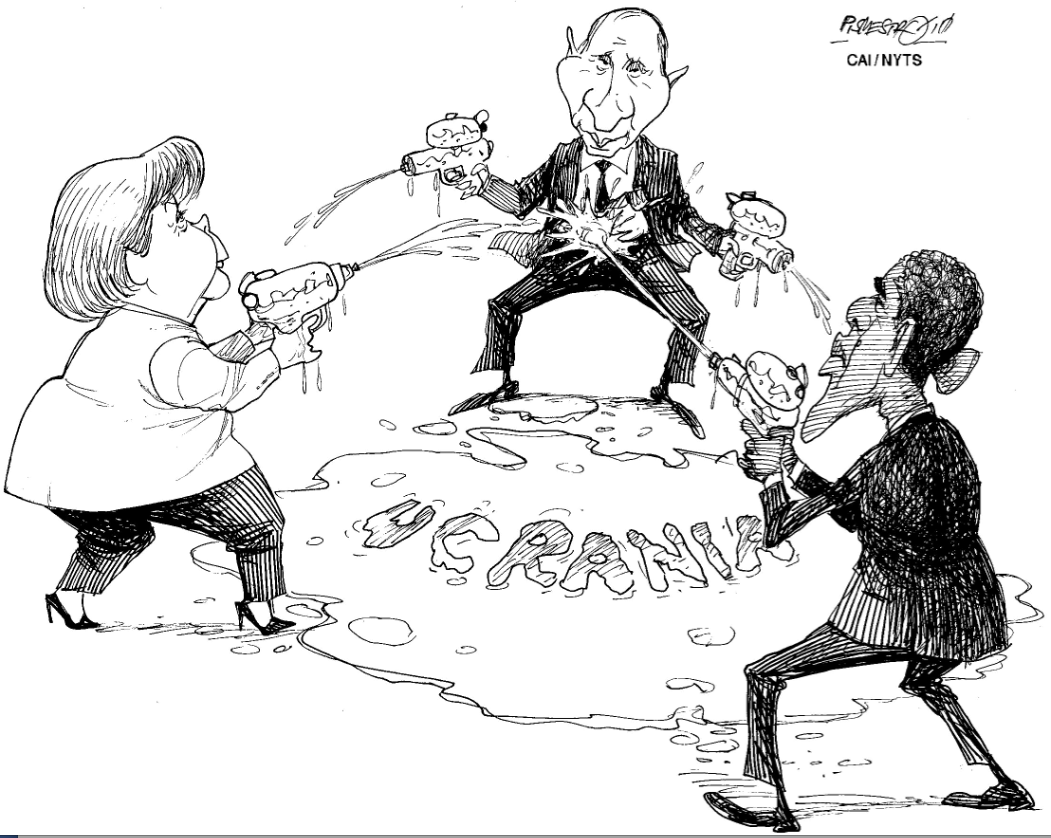For those who wonder how it came to pass that President Vladimir Putin's Russia pivoted so decisively away from a European path, Putin has an answer: It happened long before his time, during the breakup of Yugoslavia in the mid-1990s.
In a lengthy interview published last weekend by the state-owned news agency TASS, Putin appeared relaxed and unusually willing to touch upon personal matters. He let it drop, for example, that his two daughters, long said to be married to foreigners and living overseas, are in Moscow and seeing their father once or twice a month. He himself couldn't "imagine life outside Russia." As his voters begin to experience economic hardship following a steep decline in oil prices, Putin clearly feels he needs to appeal to their patriotism — and to explain why he sees the West as a treacherous rival:
"Every time Russia gets back on its feet, grows stronger and declares its right to defend its interests beyond its borders, the attitude toward the country itself and its leaders changes immediately. Remember what happened with Boris Nikolaevich [Yeltsin, Russia's first president]. Initially, the world had a good reaction to him. No matter what Yeltsin did, the West cheered.



